noahspud
I've been writing since fourth grade and blogging since 2014. I've been a nerd my whole life.
Correspondent I
- Plebian Penman
- Common Writer
- Aristocratic Author
- Lurker
- Pssst
- Hand Raiser
- Sharp-Eyed Citizen
- Town Watch
- Detective Deskman
- Actor
- Fanboy
- Article of the Month
- ?
- Articles
13 - Featured
13 - Comments
129
- Ext. Comments
39 - Processed
30 - Revisions
27
- Topics
28 - Topics Taken
14 - Notes
40
- Topics Proc.
30 - Topics Rev.
4
- Points
4432 - Rank
32 - Score
2193
Latest Articles
Latest Topics
Wicked: Book vs MusicalWith the Wicked movie coming out, it'd be nice to see an analysis of how wildly different the Broadway musical is from the novel it's loosely based on.
|
Supernatural Age-Gap Romance: Dope or Nope?In stories where some characters are immortal – i.e. living for a very long time without aging – the subject of romance can be a touchy topic. It is hard to find people with shared life experience when everyone else measures life in decades rather than centuries. There is often a question of power imbalance when one side of a relationship is so much older than the other.
|
Anakin Skywalker vs Darth Vader: Character Development in ReverseMany Star Wars fans consider Anakin Skywalker effectively a different character from Darth Vader. However, analyzing Anakin's character progression from Jedi to Sith can be very interesting, especially depending on viewing order. For fans of the original trilogy, the prequels' portrayal of Anakin may have been startling. On the other hand, a chronological viewing, especially one that includes the Clone Wars series, may depict a slow but steady character arc for young Skywalker with a tragic but inevitable conclusion. Compare and contrast the two characters. What traits of Anakin's remain in Darth Vader, and how are they portrayed differently? Where do we see traits of Darth Vader peeking through in Anakin during the prequel era? Does this change how we see other heroes and villains, like Luke Skywalker or Kylo Ren, and even characters from other franchises?
|
Are Superheroes Fantasy or Science Fiction?Superhero stories are filled with fantasy tropes: wizards, knights in shining armor, dragons and other monsters, gods of various mythologies, and so on. Meanwhile, many superhero and supervillain origin stories seem like science fiction premises (mutated DNA, aliens, and so on). Most superpowers, even the ones that are supposedly based on science, defy science to the point where they would be indistinguishable from magic in a fantasy setting.
|
Arrow: Oliver Queen's Trauma RecoveryIn the CW's Arrow, before Oliver Queen got stuck on Trauma Island, he was a stereotypical Billionaire Playboy. When he got back, he spent a lot of time pretending he was still the same person, in order to cover up who he had really become: a vigilante on a quest for justice. Oliver pretended his five years of trauma hadn't dramatically changed him. |
Are Detectives the Main Characters in their Own Stories?An interesting trend in mystery fiction is the "outsider" nature of the classic detective. These characters – Hercule Poirot, Sherlock Holmes, Adrian Monk, Shawn Spencer, Scooby Doo, etc – seem to exist for the purpose of helping other people's stories reach resolution. Although they are often the perspective characters in their stories, it can be argued that the main characters are the victims and the perpetrators of the crimes being investigated. Those are the characters who are causing events to happen and having events happen to them.
|
Fantastic Racism: The Universal Prejudice MetaphorFantastic Racism is the term for writers creating a non-human race – aliens from outer space, vampires, werewolves, mutants, elves, orcs, etc. – and then using that race as a metaphor for real-world demographics that are the target of prejudice. The strength of this metaphor is that it can potentially be used in place of any minority group. In the world of X-Men, mutants have served as a metaphor for various real-world minorities over the decades, from Jewish people to Black people to LGBT's. In many fantasy worlds, orcs are seen as barbaric, monstrous outsiders. A plot requiring humans and orcs to put aside their differences – such as the film Warcraft – can be used as a metaphor for international conflicts as well as domestic diversity. Meanwhile, in Max Landis' urban fantasy world of Bright, orcs become a metaphor for any group with an antagonistic relationship with the police, due to poverty, ethnicity, or culture. Other examples include Skyrim, Supergirl, True Blood, and even Harry Potter. Analyze these and other examples of Fantastic Racism. Do some work better as metaphors than others? Can we learn different lessons from these stories that we may not see in stories about real-world human minority groups?
|
Urban Fantasy vs Cosmic HorrorIn the Urban Fantasy genre – Percy Jackson and the Olympians, Fantastic Beasts and Where to Find Them, etc. – magic and magical creatures exist alongside humans, but humans don't know about them.
|
Latest Comments
| Click: A Tragic Tale Exploring the Importance of Family | |
Some have posited it’s because they threw in some Vegeta while they were at it. | Superman, Alienation, and Evil |
If the stories of some of these “infinity girls” were told from another perspective, they might be seen as Manic Pixie Dream Girls – which just adds to the central tension of real-world girls who relate to them not knowing what to do with themselves as adults. | Classic Literature's "Infinity Girls" |
Nolan’s “Oppenheimer” may have started a new sub-genre of “pre-apocalypse” movies. Before that, post-apocalyptic stories were a heck of a lot more popular; the hope that anyone who survives a nuclear war will be able to have some kind of fulfilling life, even if civilization is dead, is more attractive than fear, even fear of something realistic. | Nuclear Nightmares in Film and Preventing Eventual Armageddon |
It happened once in the comics. It ended about like you would expect: Dr. Manhattan having a philosophical debate with himself about whether Superman deserves to punch his head off or not (Dr. Manhattan thought he could, so he probably could). And then they just kinda became friends and went home. | Superman, Alienation, and Evil |
Fair point. I didn’t want to throw in too many examples. | Superman, Alienation, and Evil |
Yup. Arranging things in categories like that is a side effect of overthinking way. too. much. about them. | Villains of the Shrek Universe: From Nursery Rhymes to the Grim Reaper |
Man, I love time loops. I especially love how there are so many different potential responses to time loops. Exploring every possible location searching for a way to stop the time loop, only to realize you can’t… that’s fun. | Outer Wilds and the Concept of ‘Going in Blind’ |
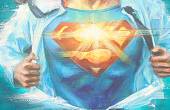
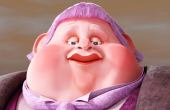

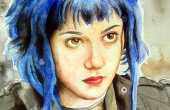

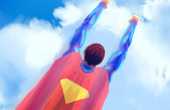
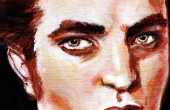
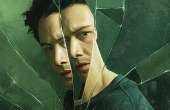
There was a story in an episode of Adventures in Odyssey about a boy with a magic stopwatch that he could use to fast-forward his life. It was a lot like Click, eight years earlier.